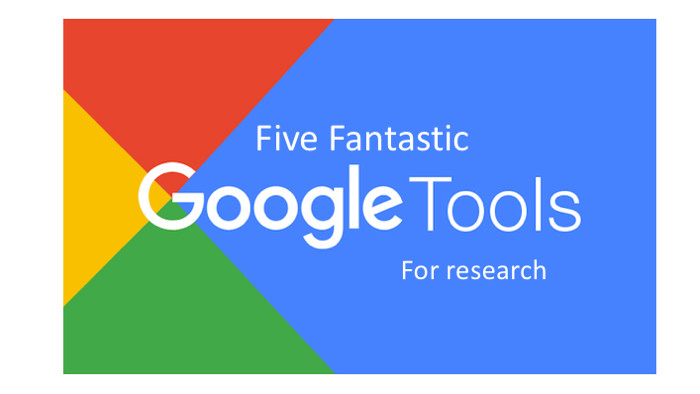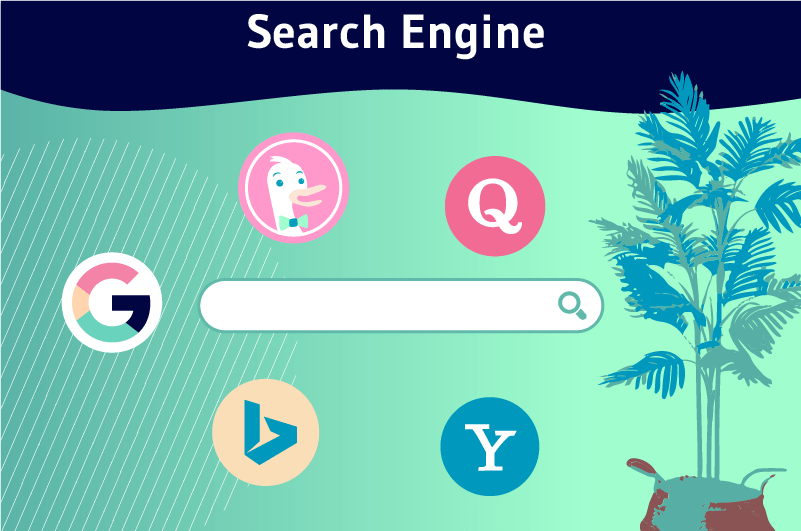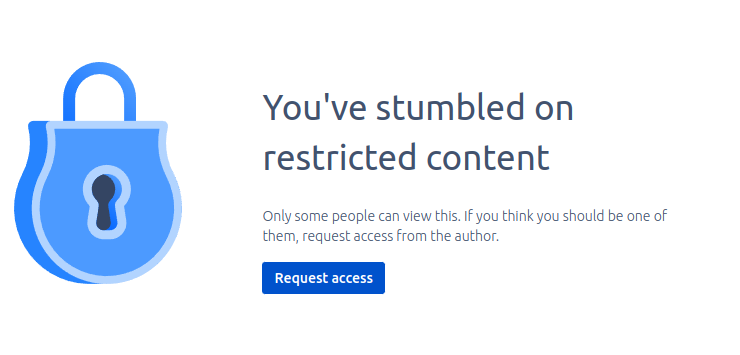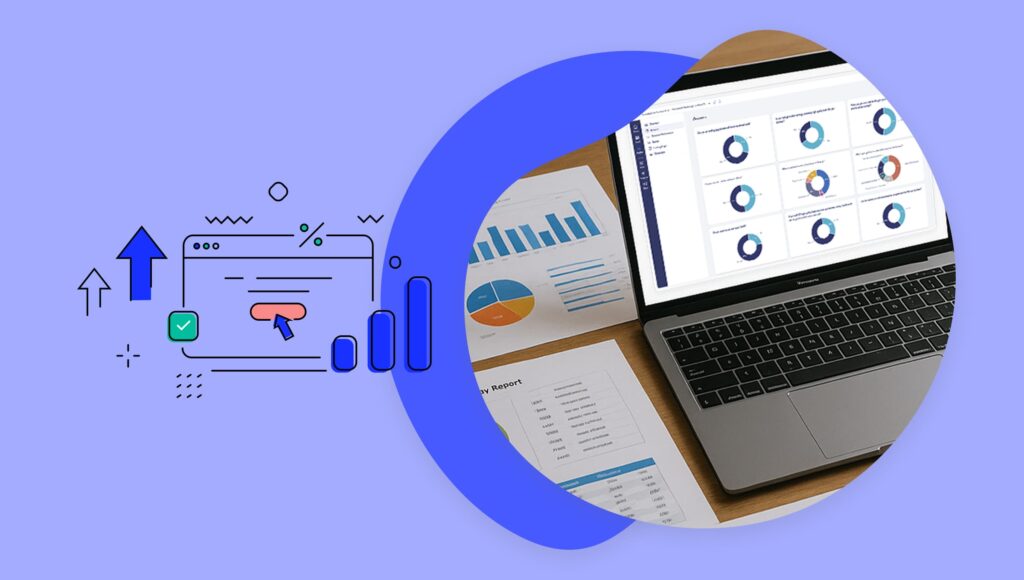Google Scholar has become the go-to research tool for most students, and while it's undeniably useful, it's only scratching the surface of what's available in the academic research world. Think of Google Scholar as the popular tourist destination—everyone goes there, but the real treasures are hidden in the lesser-known corners of the academic universe. These hidden gems can give you access to sources your classmates will never find, help you discover cutting-edge research, and provide the depth and specificity that can make your papers stand out from the crowd.

The truth is, most students stick to the same few research tools because they're familiar and easy to use. But the academic world is vast, with thousands of specialized databases, niche search engines, and restricted repositories that contain some of the most valuable research available. These hidden resources can be the difference between a good paper and a great one, between finding the obvious sources and discovering the groundbreaking research that sets your work apart.
Whether you're writing a psychology paper, analyzing historical events, or exploring scientific phenomena, there are specialized tools and databases designed specifically for your field. These resources often contain peer-reviewed articles, primary sources, and cutting-edge research that Google Scholar might miss or make difficult to access. By learning to navigate these hidden gems, you're not just improving your research skills—you're giving yourself a significant advantage in academic writing.
In this comprehensive guide, we'll explore the lesser-known research databases, specialized academic search engines, and advanced techniques for accessing restricted content. We'll show you how to find discipline-specific resources, navigate institutional access, and discover the research tools that can transform your academic work from ordinary to extraordinary.
Why Go Beyond Google Scholar?
Before we dive into the hidden gems, let's understand why expanding your research toolkit is so important. Google Scholar is excellent for broad searches and getting a general overview of a topic, but it has limitations that can hold back your research.

Limited Access to Premium Content: Many of the sources you find on Google Scholar are behind paywalls or require institutional access. While Google Scholar can help you discover these sources, it can't always help you access them.
Broad but Shallow: Google Scholar casts a wide net, but it doesn't always provide the depth and specificity that specialized databases offer. For in-depth research, you need tools designed for your specific field.
Missing Niche Sources: Some of the most valuable research exists in specialized databases that Google Scholar doesn't index or doesn't prioritize in search results.
Lack of Advanced Filtering: While Google Scholar has some filtering options, specialized databases often offer much more sophisticated search and filtering capabilities.
Institutional Bias: Google Scholar's algorithm might favor certain types of sources or institutions, potentially missing valuable research from smaller or specialized organizations.
Discipline-Specific Research Databases
The academic world is organized by disciplines, and each field has its own specialized databases that contain the most relevant and up-to-date research. These databases are often maintained by professional organizations, academic institutions, or specialized publishers who understand the unique needs of researchers in each field.

Psychology and Social Sciences
PsycINFO: This is the gold standard for psychology research, containing over 4 million records from psychology journals, books, and dissertations. It's maintained by the American Psychological Association and includes sources that might not appear in Google Scholar.
PsycARTICLES: A companion to PsycINFO, this database provides full-text access to articles from APA journals, making it invaluable for psychology students who need immediate access to peer-reviewed research.
ERIC (Education Resources Information Center): While focused on education, ERIC contains valuable research on learning, development, and educational psychology that's relevant to many social science topics.
SocINDEX: This comprehensive sociology database includes full-text articles, books, and conference papers that provide deep insights into social phenomena and research methods.
JSTOR: While not exclusively for social sciences, JSTOR has extensive collections in psychology, sociology, and related fields, with many sources dating back decades.
Science and Technology
PubMed: The go-to database for medical and life sciences research, PubMed contains over 30 million citations from biomedical literature. It's maintained by the National Library of Medicine and provides access to cutting-edge medical research.
IEEE Xplore: Essential for engineering and computer science students, IEEE Xplore contains millions of documents from the Institute of Electrical and Electronics Engineers, including conference papers, journals, and standards.
ScienceDirect: This comprehensive database covers all areas of science, technology, and medicine, with over 16 million articles from Elsevier journals.
Web of Science: A powerful citation database that helps you track how research has evolved over time and identify the most influential papers in your field.
arXiv: A preprint server where researchers share their latest findings before formal publication, giving you access to cutting-edge research in physics, mathematics, computer science, and other fields.
Humanities and Arts
MLA International Bibliography: The premier database for literature, language, and cultural studies, containing over 3 million citations from journals, books, and dissertations.
Art & Architecture Source: A comprehensive database covering art, architecture, design, and related fields, with full-text articles and images.
Historical Abstracts: Essential for history students, this database covers world history from 1450 to the present, with sources that might not appear in general academic databases.
Project MUSE: A collection of high-quality humanities and social sciences journals, often with full-text access through institutional subscriptions.
HathiTrust: A digital library containing millions of books and documents, many of which are freely available and not found in other databases.
Business and Economics
Business Source Complete: A comprehensive business database with full-text articles, case studies, and industry reports that provide real-world insights for business students.
EconLit: The premier database for economics research, containing citations from economics journals, books, and working papers.
ProQuest Business: A collection of business databases that includes company profiles, industry reports, and market research.
SSRN (Social Science Research Network): A repository for working papers and preprints in economics, finance, and other social sciences.
Specialized Academic Search Engines
Beyond the major databases, there are specialized search engines designed for specific types of research or particular academic needs. These tools often provide unique features and access to sources that traditional databases might miss.

Semantic Scholar
What it is: An AI-powered search engine that uses machine learning to understand the meaning and context of research papers.
Why it's valuable: Semantic Scholar can help you find papers based on concepts and ideas rather than just keywords, making it easier to discover relevant research even when you don't know the exact terminology.
Best for: Interdisciplinary research, finding papers on complex topics, discovering connections between different fields of study.
How to use it: Enter your research question in natural language, and Semantic Scholar will find papers that address similar concepts, even if they use different terminology.
BASE (Bielefeld Academic Search Engine)
What it is: One of the world's largest search engines for academic web resources, indexing over 200 million documents from over 8,000 sources.
Why it's valuable: BASE provides access to many open-access sources that might not appear in other databases, including institutional repositories and open-access journals.
Best for: Finding open-access research, accessing institutional repositories, discovering research from smaller or specialized institutions.
How to use it: Use BASE when you want to find open-access sources or when you're looking for research that might not be in commercial databases.
CORE
What it is: The world's largest collection of open-access research papers, with over 200 million articles from thousands of repositories worldwide.
Why it's valuable: CORE specializes in open-access content, making it easier to find and access research without paywalls or institutional restrictions.
Best for: Open-access research, finding papers from institutional repositories, accessing research from developing countries.
How to use it: Use CORE when you need immediate access to research papers or when you're looking for open-access alternatives to paywalled content.
Microsoft Academic
What it is: A free academic search engine that uses AI to understand research papers and their relationships.
Why it's valuable: Microsoft Academic provides detailed author profiles, citation networks, and research trends that can help you understand the landscape of your field.
Best for: Understanding research trends, finding influential authors, discovering citation networks, tracking the evolution of research topics.
How to use it: Use Microsoft Academic to explore the broader context of your research topic and understand how different papers and authors are connected.
ResearchGate
What it is: A social network for researchers that allows you to follow researchers, ask questions, and access research papers.
Why it's valuable: ResearchGate provides access to preprints, working papers, and research that might not be published yet, as well as the ability to connect directly with researchers.
Best for: Finding cutting-edge research, connecting with researchers in your field, accessing preprints and working papers.
How to use it: Create a profile, follow researchers in your field, and use the search function to find papers and connect with authors.
Accessing Restricted Content
One of the biggest challenges in academic research is accessing content that's behind paywalls or requires institutional access. However, there are several strategies and resources that can help you access restricted content legally and ethically.

Institutional Access
University Libraries: Your university library is your best resource for accessing restricted content. Most universities have subscriptions to major academic databases and can provide access to thousands of journals and databases.
How to use it: Check your university library's website for a list of available databases, and use your student credentials to access them. Many libraries also offer remote access, so you can use these resources from anywhere.
Interlibrary Loan: If your library doesn't have access to a specific source, they can often obtain it through interlibrary loan services.
How to use it: Contact your library's interlibrary loan department with the details of the source you need, and they'll work to obtain it from another library.
Open Access Alternatives
Directory of Open Access Journals (DOAJ): A comprehensive directory of open-access journals that provides free access to peer-reviewed research.
How to use it: Search DOAJ for journals in your field, and then browse their recent issues for relevant research.
Open Access Button: A browser extension that helps you find open-access versions of paywalled articles.
How to use it: Install the extension, and when you encounter a paywalled article, click the button to search for open-access alternatives.
Unpaywall: Another browser extension that automatically finds open-access versions of articles when available.
How to use it: Install Unpaywall, and it will automatically check for open-access versions of articles you're viewing.
Author Contact
Direct Contact: Many researchers are happy to share their work directly, especially if you're a student conducting research.
How to do it: Look for the author's email address (often available on their institutional profile or in the paper itself), and send a polite email explaining your research and requesting access to their paper.
ResearchGate and Academia.edu: These platforms often allow you to request papers directly from authors.
How to use it: Create a profile, find the author's page, and use the platform's messaging system to request access to their papers.
Preprint Servers
arXiv: A preprint server for physics, mathematics, computer science, and other fields where researchers share their latest findings before formal publication.
bioRxiv: A preprint server for biology research.
medRxiv: A preprint server for medical research.
How to use them: These servers provide free access to cutting-edge research that might not be published yet, giving you access to the latest findings in your field.
Advanced Research Techniques
Once you've discovered these hidden gems, you need to know how to use them effectively. Advanced research techniques can help you find the most relevant sources and make the most of your time.

Boolean Search Strategies
Understanding Boolean Operators: Boolean search uses operators like AND, OR, and NOT to create more precise searches.
AND: Use AND to find sources that contain both terms (e.g., "depression AND treatment").
OR: Use OR to find sources that contain either term (e.g., "anxiety OR stress").
NOT: Use NOT to exclude certain terms (e.g., "depression NOT bipolar").
Quotation Marks: Use quotation marks to search for exact phrases (e.g., "cognitive behavioral therapy").
Wildcards: Use asterisks () to search for variations of a word (e.g., "psycholog" will find psychology, psychological, psychologist, etc.).
Citation Mining
Forward Citation Mining: Find papers that cite a key paper in your field to discover newer research that builds on important work.
How to do it: Use databases like Web of Science or Google Scholar to find papers that cite a key source, then explore those newer papers.
Backward Citation Mining: Look at the references in a key paper to find the foundational research that influenced it.
How to do it: Read the reference list of important papers in your field to discover the foundational research that shaped current understanding.
Database-Specific Search Strategies
Subject Headings: Many databases use controlled vocabulary (subject headings) that can help you find more relevant sources.
How to use them: Look for the database's thesaurus or subject heading list, and use these standardized terms in your searches.
Field-Specific Searches: Different databases allow you to search specific fields (title, abstract, author, etc.).
How to use them: Use field-specific searches to narrow your results and find more relevant sources.
Date Ranges: Use date ranges to find recent research or focus on specific time periods.
How to use them: Set date ranges to find the most current research or to focus on research from specific time periods.
Building Your Research Toolkit
Now that you know about these hidden gems, it's time to build your personal research toolkit. A well-organized toolkit will help you find the best sources efficiently and consistently.

Essential Tools for Every Student
Reference Management Software: Tools like Zotero, Mendeley, or EndNote can help you organize your sources and generate citations automatically.
Browser Extensions: Install extensions like Unpaywall, Open Access Button, and Zotero Connector to streamline your research process.
Database Bookmarks: Create a bookmark folder with links to all the databases relevant to your field of study.
Search Strategy Templates: Create templates for different types of searches (broad topic exploration, specific question research, etc.).
Discipline-Specific Toolkits
Psychology Students: Focus on PsycINFO, PsycARTICLES, and ERIC, along with tools for accessing clinical research and case studies.
Science Students: Emphasize PubMed, IEEE Xplore, and ScienceDirect, along with preprint servers like arXiv.
Humanities Students: Prioritize MLA International Bibliography, JSTOR, and Project MUSE, along with tools for accessing historical documents and cultural materials.
Business Students: Focus on Business Source Complete, EconLit, and ProQuest Business, along with tools for accessing industry reports and market research.
Staying Updated
Database Alerts: Set up alerts in your key databases to be notified when new research is published in your field.
Journal Alerts: Subscribe to email alerts from key journals in your field to stay current with the latest research.
Author Following: Follow key researchers in your field on platforms like ResearchGate and Academia.edu to stay updated on their latest work.
Conference Proceedings: Keep track of major conferences in your field and access their proceedings for cutting-edge research.
Common Mistakes to Avoid
As you explore these hidden gems, there are some common mistakes that can undermine your research efforts. Being aware of these pitfalls can help you make the most of these valuable resources.

Overreliance on Single Sources
The Problem: Relying too heavily on one database or search engine can limit your perspective and cause you to miss important research.
The Solution: Use multiple databases and search engines to get a comprehensive view of your research topic.
Ignoring Access Options
The Problem: Giving up on sources that seem inaccessible without exploring all available options.
The Solution: Always check for open-access alternatives, institutional access, and direct author contact before giving up on a source.
Poor Search Strategies
The Problem: Using the same search terms across all databases without adapting to each database's specific features.
The Solution: Learn the unique features of each database and adapt your search strategies accordingly.
Not Organizing Your Research
The Problem: Finding great sources but losing track of them or not being able to find them again.
The Solution: Use reference management software and develop a consistent system for organizing your research.
The Future of Academic Research
The landscape of academic research is constantly evolving, with new tools and databases emerging regularly. Staying current with these developments can give you a significant advantage in your academic work.

Emerging Trends
AI-Powered Search: Artificial intelligence is being integrated into more research tools, making it easier to find relevant sources and understand complex relationships between different research areas.
Open Access Movement: The push for open access to research is making more content freely available, reducing barriers to accessing cutting-edge research.
Collaborative Research Platforms: New platforms are emerging that facilitate collaboration between researchers and provide access to shared resources and data.
Real-Time Research: Some fields are moving toward real-time sharing of research findings, making it possible to access the latest developments as they happen.
Preparing for the Future
Stay Informed: Follow academic news and developments to stay current with new tools and resources.
Be Flexible: Be willing to try new tools and adapt your research strategies as the landscape changes.
Build Networks: Connect with other researchers and students to share knowledge about new tools and resources.
Develop Core Skills: Focus on developing fundamental research skills that will serve you regardless of which tools you use.
Conclusion
The world of academic research is far richer and more diverse than what you'll find on Google Scholar alone. By exploring these hidden gems—specialized databases, niche search engines, and advanced access strategies—you're not just improving your research skills; you're giving yourself access to sources and insights that can transform your academic work.
Remember, the goal isn't to use every tool available, but to build a personalized toolkit that serves your specific research needs. Start by identifying the databases and tools most relevant to your field, then gradually expand your toolkit as you encounter new research challenges.
The key to success is persistence and curiosity. Don't be afraid to explore unfamiliar databases or try new search strategies. The most valuable research often comes from sources that aren't immediately obvious, and the skills you develop in navigating these hidden gems will serve you throughout your academic and professional career.
As you continue your research journey, remember that these tools are just that—tools. The real value comes from how you use them to discover, analyze, and synthesize information. By mastering these hidden gems, you're not just finding better sources; you're developing the critical thinking and research skills that will make you a more effective scholar and writer.
So go ahead, explore these hidden gems, and discover the research resources that can take your academic work to the next level. Your future self—and your professors—will thank you for the effort you put into mastering the art of deep academic research.
